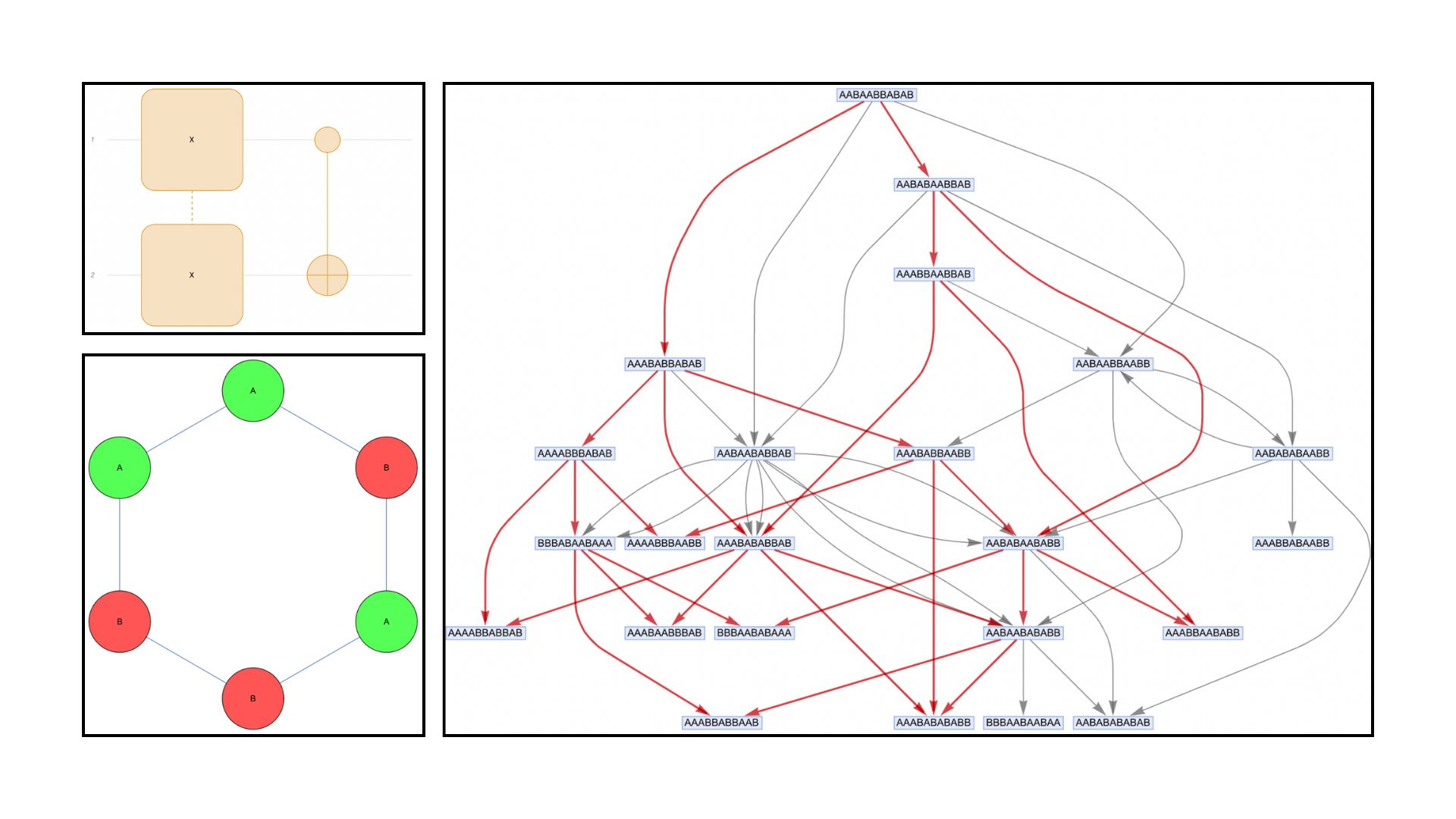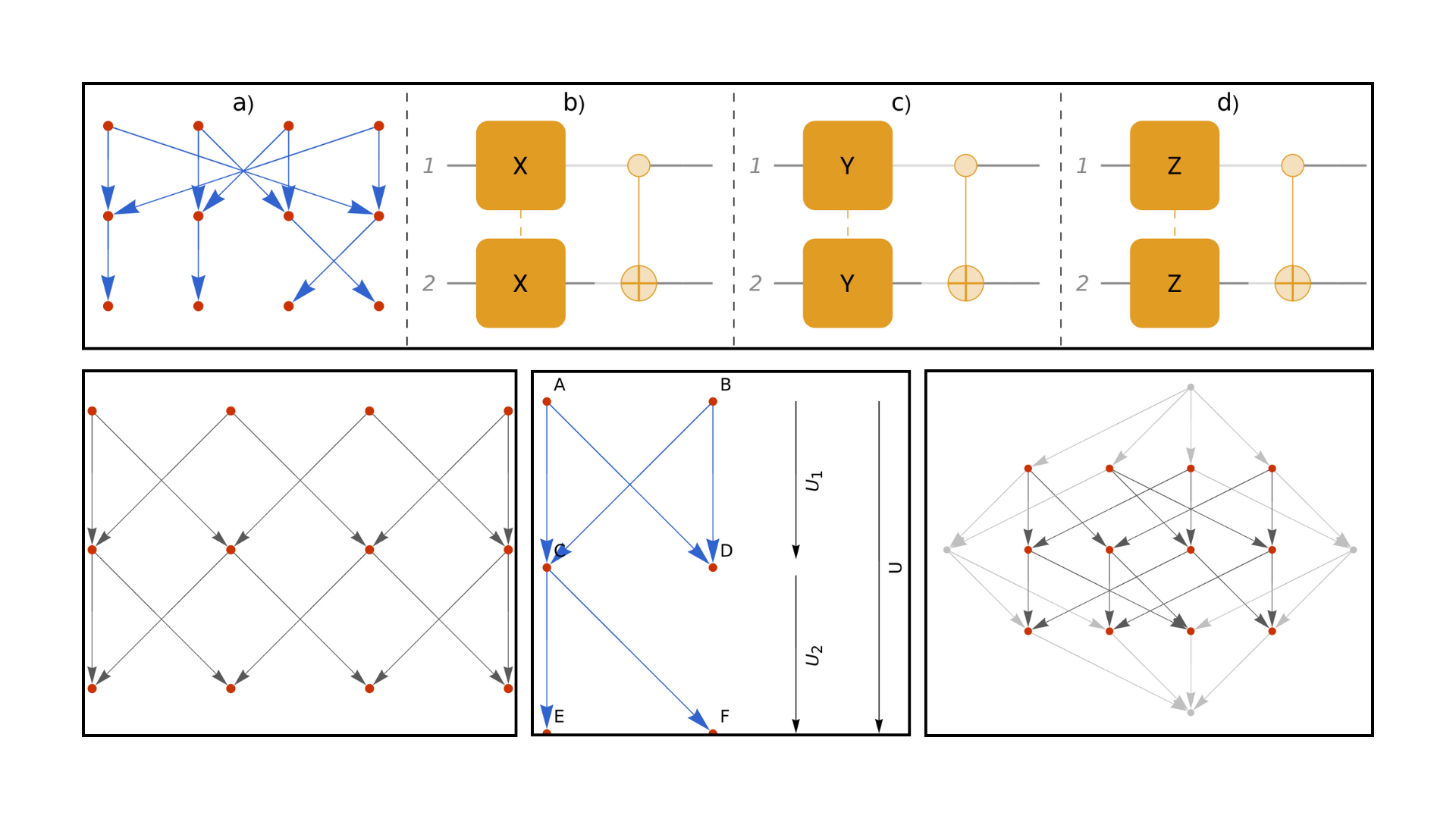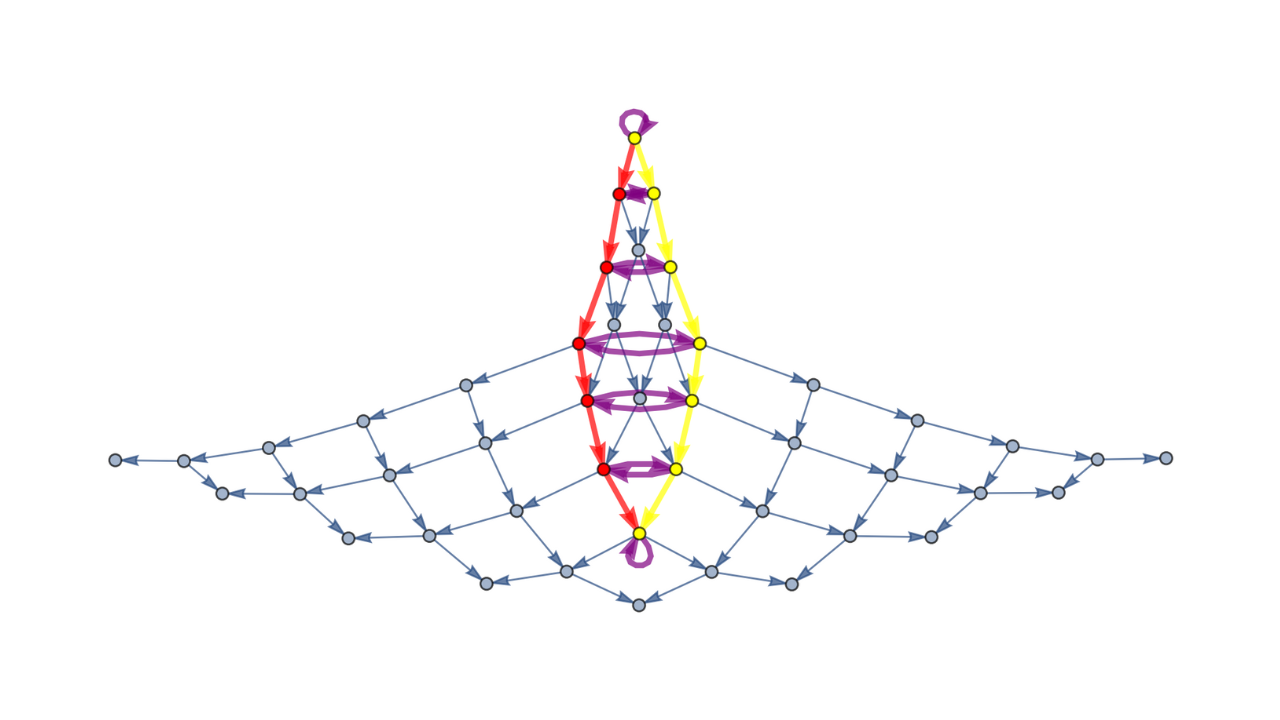
Wolfram Physics Project
The Wolfram Physics Project seeks to redefine our understanding of the universe through the development of a new fundamental theory of physics based on computational principles.
Project Overview
The Wolfram Physics Project is pioneering an approach where the fabric of reality is seen as a network of discrete spacetime elements, governed by simple, underlying rules. This project builds on the idea that all physical phenomena arise from these fundamental interactions, which can be modeled computationally. By exploring these interactions, the project aims to provide insights into the unification of general relativity and quantum mechanics, potentially solving longstanding puzzles in physics. The implications of this research extend beyond traditional physics, offering new ways to think about information, complexity and the very nature of reality itself. This project not only challenges existing paradigms but also opens up new avenues for technological innovation influenced by a deeper understanding of the computational structure of the universe.
Relevant Resources
-
The Wolfram Physics Project Home Page
Launched April 2020.
An Approach to the Fundamental Theory of Physics (& More)
-
Finally We May Have a Path to the Fundamental Theory of Physics… and It’s Beautiful
April 14, 2020
Stephen Wolfram (2020), Stephen Wolfram Writings.
-
Technical Introduction Book
A Class of Models with the Potential to Represent Fundamental Physics.
By Stephen Wolfram.
-
A Class of Models with the Potential to Represent Fundamental Physics
Submitted on 15 Apr 2020. Stephen Wolfram.
Complex Systems, 29(2), 2020 pp. 107-536. https://doi.org/10.25088/ComplexSystems.29.2.107
-
How We Got Here: The Backstory of the Wolfram Physics Project
April 14, 2020
Stephen Wolfram (2020), Stephen Wolfram Writings.
Associated Output
Furkan Semih Dündar, Xerxes D. Arsiwalla, Hatem Elshatlawy
Using Wolfram Model multiway rewriting systems we have found that by using multiway systems one can construct representations of quantum circuits, showing that one can encode the Hadamard gate, the π/8 gate and the CNOT using multiway rewriting systems. This suggests the possibility of universal quantum computation using multiway rewriting.
Furkan Semih Dündar, Xerxes D. Arsiwalla, Hatem Elshatlawy
We show how representations of finite-dimensional quantum operators can be constructed using nondeterministic rewriting systems. In particular, we investigate Wolfram model multiway rewriting systems based on string substitutions.
Dean Rickles, Xerxes D. Arsiwalla, Hatem Elshatlawy
This volume argues that concepts from the theory of computation—including information theory, formal languages, and discrete structures—might provide novel paths towards a solution to the problem of quantum gravity. By combining elements of physics with computer science and mathematics, the volume proposes to transform the foundations of spacetime physics and bring it into the digital age.
Thomas Murff, Xerxes D. Arsiwalla
This work studies upper bounds on the chromatic index of linear, loopless hypergraphs. The first bound is derived using a color-preserving group acting on a properly and minimally edge-colored hypergraph, where the group’s orbits create a finer partition of the coloring. This provides an upper bound on the chromatic index. The following results examine combinatorial properties of hypergraph coloring and outline a possible approach to the Berge–Füredi conjecture, linking the chromatic index to the maximum degree of the associated graph plus one. Three sufficient conditions are also identified for the conjecture to hold, involving the Helly property for hypergraphs.
Utkarsh Bajaj
Hypergraph rewriting is studied through categorical frameworks to establish foundational concepts of events and causality in graph rewriting systems. Novel concepts are introduced within double-pushout rewriting in adhesive categories. An algorithm is constructed to determine causal relations between events during λ-calculus evaluation, with extensions developed for arbitrary λ-expressions.
Stephen Wolfram
It is shown that way the Wolfram Language rewrites and evaluates expressions mirrors the universe’s own evolution: both proceed through discrete events linked by causal relationships, form “spacetime-like” structures and branch into multiway histories analogous to quantum superpositions.
Jonathan Gorard
This study extends the Raychaudhuri equation to discrete spacetimes, exploring conditions under which they might exhibit geodesic incompleteness, and applies numerical simulations to predict black hole formations.
Xerxes D. Arsiwalla, J.F. Du Plessis
How does one generalize differential geometric constructs such as curvature of a manifold to the discrete world of graphs and other combinatorial structures? This problem carries significant importance for analyzing models of discrete spacetime in quantum gravity; inferring network geometry in network science; and manifold learning in data science. The key contribution of this paper is to introduce and validate a new estimator of discrete sectional curvature for random graphs with low metric-distortion.
Jonathan Gorard
This article aims to provide a novel formalization of the concept of computational irreducibility in terms of the exactness of functorial correspondence between a category of data structures and elementary computations and a corresponding category of (1-dimensional) cobordisms.
Stephen Wolfram
We’re in the midst of a major “science opportunity overload”. And to be good stewards of the ideas and their potential we’ve got to scale things up. I’ve had lots of experience over decades in making big projects happen. And now it’s time to take that experience and define a new structure to move forward the amazing science opportunity we find ourselves with. And I think that leaves us no choice: we’ve got to launch the Wolfram Institute, and now!
Stephen Wolfram
One of the many surprising (and to me, unexpected) implications of our Physics Project is its suggestion of a very deep correspondence between the foundations of physics and mathematics. We might have imagined that physics would have certain laws, and mathematics would have certain theories, and that while they might be historically related, there wouldn’t be any fundamental formal correspondence between them.
But what our Physics Project suggests is that underneath everything we physically experience there is a single very general abstract structure—that we call the ruliad—and that our physical laws arise in an inexorable way from the particular samples we take of this structure.
Xerxes D. Arsiwalla, Jonathan Gorard, Hatem Elshatlawy












